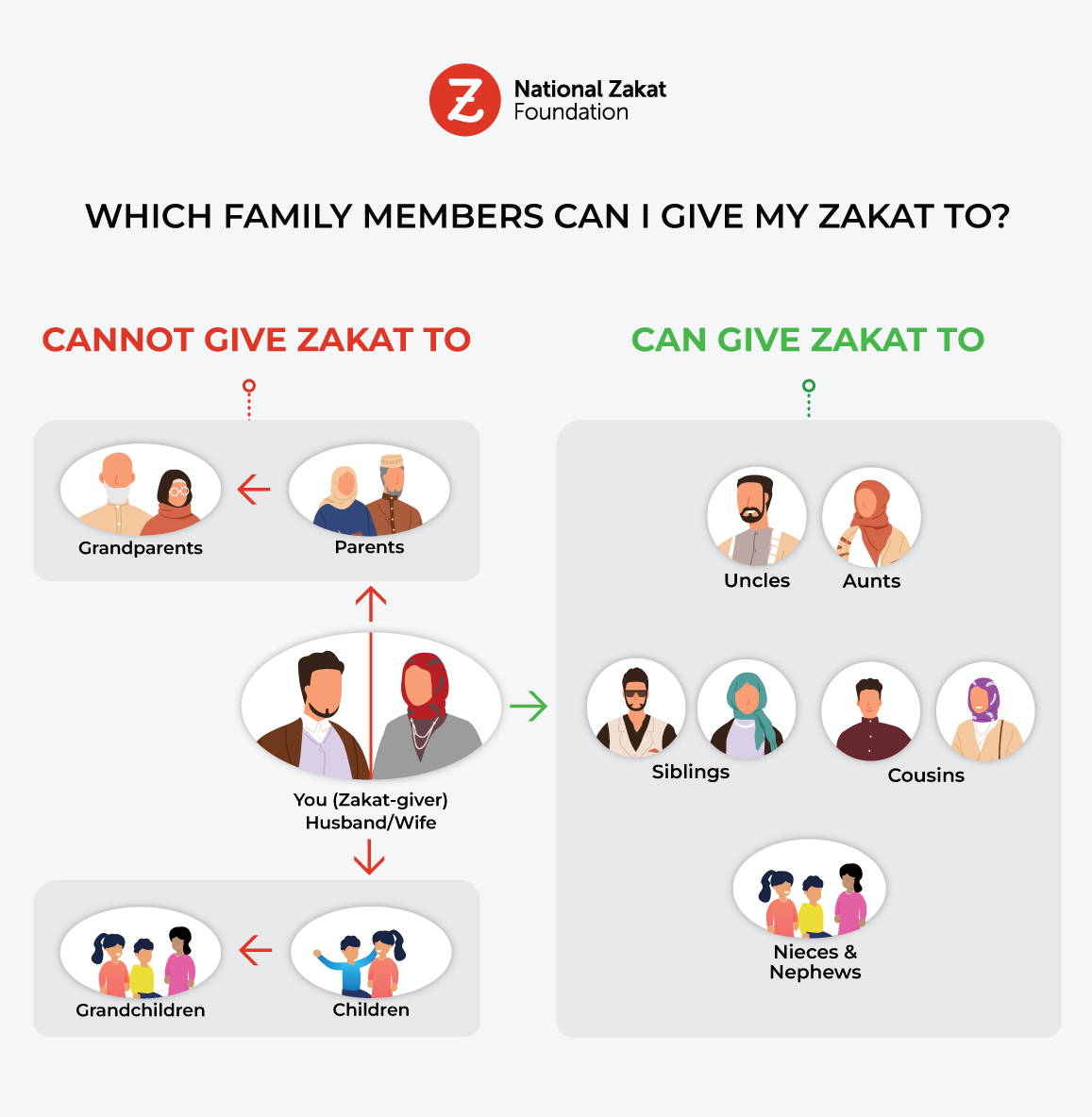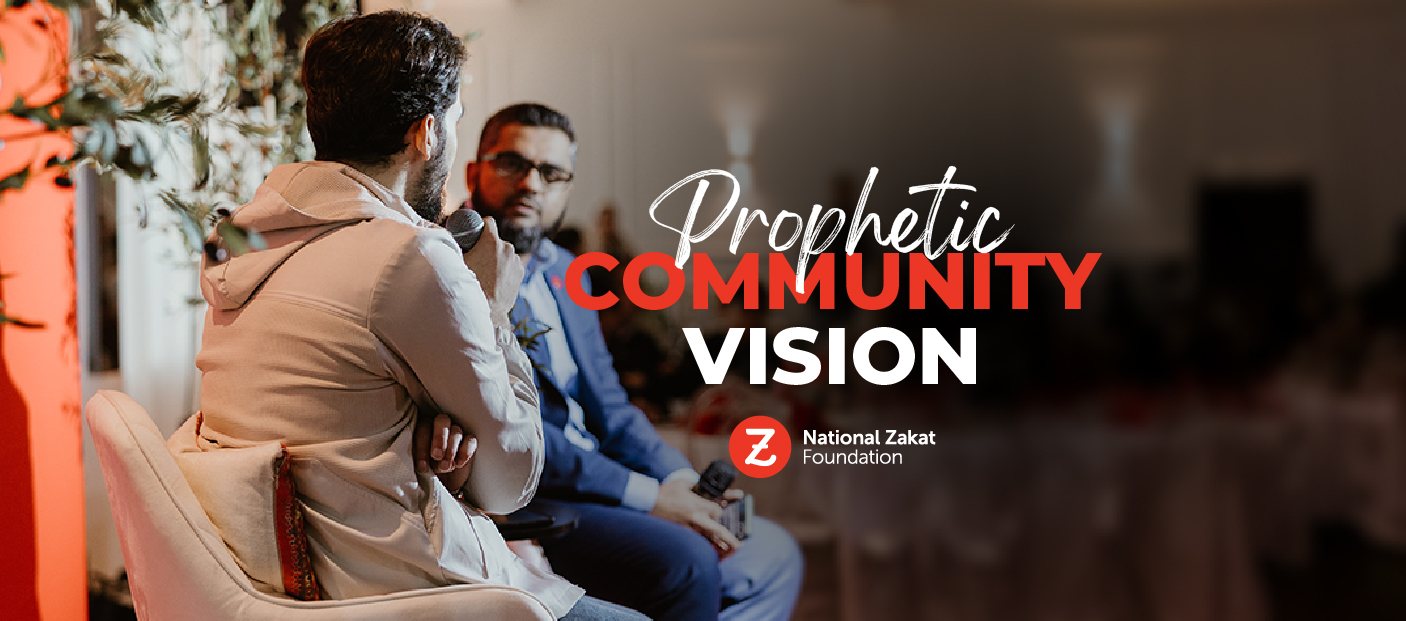March 15, 2024
Do’s and Don’ts of Giving Zakat Within Your Family

Is Zakat Charity?
Zakat is both an established worship and social need commanded by Allah that ensures public and individual benefits in this world and the next. When a person thinks about Zakat, they immediately think “charity”. However, Zakat is more specific than charity, which means it comes with rules and restrictions on who gives it, how much they must give, and to whom it is given.
Who Can Receive Zakat?
Allah states in the Quran the eight categories of people who are eligible for Zakat, but there are some individuals who cannot be given Zakat. This is determined by the relationship between them and the one giving Zakat.
The restrictions and guidelines that exist regarding family members have been derived from hadith and in-depth study by Islamic jurists. One of the many wisdoms behind the limitation surrounding Zakat and family members is to ensure that Zakat remains accessible to the general public and to ensure it does not simply stay within one's family. Also, you have an obligation to take care of some family members, so you should not have let them reach the state where they need Zakat!

The scholars of Islam have categorized family members into 3 major types: Immediate/Blood Relatives (Usool), Distant Relatives (Furoo), and Spouses. Depending on which category your relative falls within determines whether they can receive Zakat from you.
Here is a deeper breakdown of the three groups:
- Immediate/Blood Relatives (Usool): These are defined to be the closest possible family members from which progeny started and/or continues. This group of relatives consists of parents, grandparents, children, and/or grandchildren of a person.
The Hanafi and the Hanbali scholars believe that it is not permissible for any of these people to accept Zakat or be offered Zakat. This has been established based on the hadith of the Prophet (SAW) where he said, “You and your wealth belong to your father.” Since the members of this category are direct ascendents or descendants of the one giving Zakat, it will bring indirect benefit to the giver, which is not permissible. That is because it was already his responsibility to take care of them.
The Shafi’ and the Malik, however, feel that it is permissible to give Zakat within this group of relatives conditionally – they can be given Zakat only if the payee has no financial responsibility towards that relative.
2. Distant Relatives (Furoo): This group of relatives consists of siblings, aunts, uncles, cousins, nephews, nieces and all other relatives not part of Usool. These are all relatives that do not start or continue the immediate progeny of the one giving Zakat.
According to all the scholars, it is valid to pay one's Zakat to any of these family members if they are eligible to take Zakat. Some scholars have even shown dislike to exclusively give Zakat to a certain family member every year.
3. Spouse (Husband/Wife):
- Giving Zakat to Your Wife: According to all the scholars it is not valid for a husband to give their Zakat to his wife. A husband is responsible for the wife's wellbeing and basic needs and therefore there is no need for her to be given Zakat.
- Giving Zakat to Your Husband: Apart from the Hanbali scholars, all the scholars are of the opinion that Zakat should not be given to a husband, as the wife would then benefit from it either directly or indirectly. However, all scholars do agree that regular charity (other than Zakat) from a wife to her husband is permissible.
Overall, when you’re trying to figure out whether or not you can give Zakat to a specific family member, consider the following: Do you have any financial obligations towards that person and will you benefit directly or indirectly from the Zakat? If your answer to both questions is yes, it is safe to assume that you should not give them your Zakat.
Our responsibility as Muslims is not only to pay Zakat, but to also ensure that this obligation is fulfilled in a correct manner.
More questions about Zakat? Click here to visit our Zakat FAQ.
recent news
The Latest Updates in Our Organization
Here you will find updates on the latest happenings and developments at National Zakat Foundation Canada.





%20(1).webp)



.webp)






